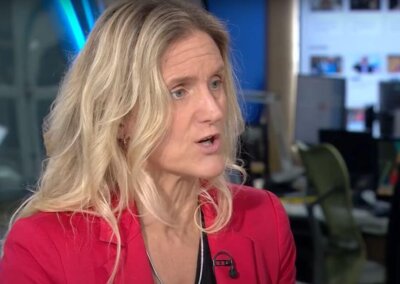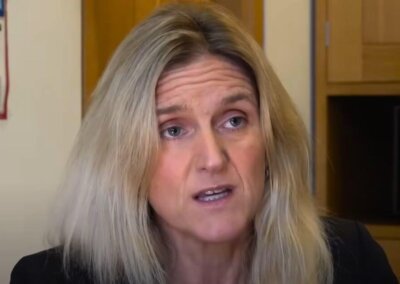Palliative care doctors, and MPs who voted both for and against the assisted suicide Bill, are worried that it will be a “distraction” from improving palliative care, which doctors have warned is unable to cope with a rise in demand.
After Kim Leadbeater’s Terminally Ill Adults (End of Life) Bill passed Second Reading at the end of last month, palliative care doctors are calling for significant investment in palliative care and a palliative care commission to improve it.
Leading palliative care doctor Baroness Ilora Finlay of Llandaff is concerned that the assisted suicide Bill would be a “distraction from improving the care that people need”, which she described as “patchy” and funded by “cake sales and charity shops”.
Finlay said “I am very concerned that this Bill, and all the time and effort that this is going to take up, is going to be a distraction from improving the care that people need”.
“We need to have a commission that looks at a funding formula and quality standards because at the moment it’s ad hoc, patchy and it’s not equitable. The whole principle of the NHS was to be providing for all according to need”.
“We’re leaving it up to cake sales and charity shops to fundraise and that’s not right”.
Funding for palliative care insufficient
During last month’s debate, a number of ministers drew attention to problems with the palliative care available, suggesting that the solution to suffering at the end of life lay here rather than in the state facilitating suicide.
Danny Kruger said “My view is that if we get our broken palliative care system right and our wonderful hospices properly funded, we can do so much more for all the people who we will hear about today, using modern pain relief and therapies to help everybody die with a minimum of suffering when the time comes. We will not be able to do that if we introduce this new option; instead, we will expose many more people to harm”.
Labour MP Rachael Maskell emphasised funding issues with and lack of access to palliative care in her speech, saying “Funding for palliative care has regressed against rising demand in an ageing society with growing comorbidities. Hospices are paring back services. Research by the Anscombe Bioethics Centre in Oxford highlights how jurisdictions with assisted dying fall down the rankings on palliative care, while promised funding never materialises. When more than 100,000 people, predominantly in poverty, from minoritised communities or based on postcode, fail to access any palliative care despite needing it, or when those who access care do so from frequently overstretched services, unable to make timely or optimised interventions, or when, for most, care starts far too late, tragic testimonies follow, as we have heard in recent days”.
The Mother of the House Diane Abbott drew attention to the fact that “If the Bill passes, we will have the NHS as a 100% funded suicide service, but palliative care will be funded only at 30% at best”.
Convincing arguments around increased palliative care investment
Similar arguments around palliative care were made by other ministers, including Sir Edward Leigh and Tim Farron, which appears to have made an impact on one new unnamed Labour MP who voted for the Bill. The unnamed MP told The Guardian “I’ve (spent) the weekend trying to convince myself I made the right decision for my constituents with the time I had”.
“But having listened to some colleagues make their arguments, I do think we really need to consider whether funding that could help people in palliative care could end up going to doctors who are needed to ensure assisted dying can go ahead for people who do need it”.
During the debate, Health Secretary Wes Streeting, who voted against the Bill, was seen nodding in agreement with the comments about improving end-of-life care. Streeting has previously shared his own concerns around palliative care, telling backbenchers in October that end-of-life care is not good enough for people to make a “genuine choice” about assisted suicide.
As the debate over palliative care funding continues, research shows that demand for palliative care is set to increase. In 20 years’ time, there are expected to be 100,000 more people dying each year in the United Kingdom. Analysis by Marie Curie shows that by 2048, the number of people with palliative care needs in the UK will climb by more than 147,000 to over 730,000. Matthew Reed, chief executive of Marie Curie said the findings from the survey show that “care for dying people is in crisis”. Worryingly, according to Hospice UK, the UK hospice sector is facing a collective estimated deficit of £77 million in the financial year 2023-24.
Spokesperson for Right To Life UK, Catherine Robinson, said “Palliative care doctors, MPs and the Health Secretary himself are urging the Government, loud and clear, to invest money and resources into palliative care”.
“It’s time to focus on high-quality end-of-life care, not assisted suicide”.












